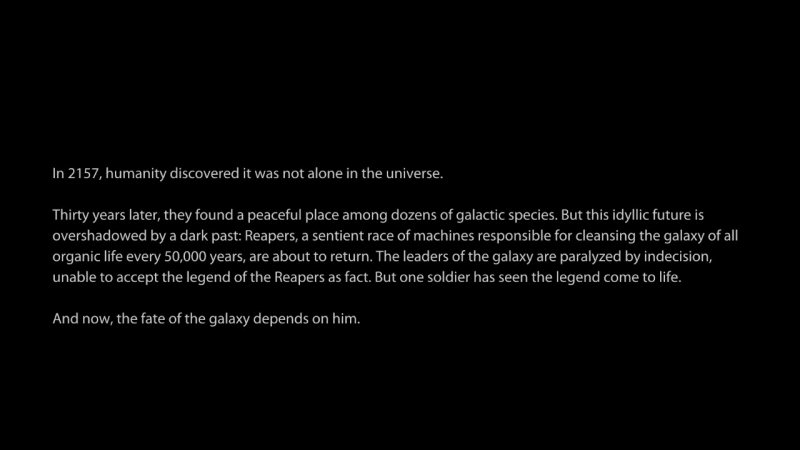Mass Effect Retrospective 34: We Fight Then We Die
The Alliance calls Shepard to some sort of hearing. This hearing (or whatever this is, they don’t follow any sort of protocol) would have been a great chance to pave over the plot holes of Mass Effect 2 and give us some context for what happened between “I’m going to find some way to beat the Reapers” and “I’m going to sit in this room doing nothing until I’m sent for”.
Maybe show that the Alliance was really, really wrapped up in some secondary problems or conflict that seemed really important to them at the time, which is why they seemed so inert in the last game. Maybe show a political struggle that explains or partly justifies their seemingly odd behavior. Maybe show that they were indeed working on the Reaper threat, but were afraid to tell you because of the whole Cerberus thing. Maybe this is all just an inquiry, so Shepard can explain (to both the Alliance and the players who missed Mass Effect 2) what happened at the Collector base.
As it stands, we know more about what happened in the Rachni wars two thousand years ago than we know what our protagonist has been up to since the end of the last game. This writer must
hate worldbuilding.
Ideas? Anyone?
The writer put the Alliance behind a stage curtain last game. At the start of this game they were free to claim whatever they liked about what the Alliance was doing. And they chose to reveal that the Alliance was doing… nothing.
Just to drive the point home, the writers have the Alliance ask Shepard what they should do about the approaching Reaper fleet. This is really annoying, since Shepard doesn’t actually have anything useful to say and
answering that question was supposed to be the plot of the previous game. Not only were they not doing anything, but they
still aren’t doing anything. They have no plans, no ideas, no initiative.
Mass Effect 3 decided to focus on Earth, and then refused to make Earth an interesting place. None of these people have names, personalities, or agendas. They just look at Shepard like dumb kids who forgot to study the night before an exam. The player is being asked to struggle to save a planet of apathetic people who can’t think for themselves.
Make us care about these people before you blow them up, so we can have some sort of tangible motivation for saving Earth.
And of course there’s the infamous trailer-bait line where Shepard proclaims, “We fight or we die!” I feel like everyone has already dog-piled on this, but for the sake of completeness:
Yes, that line is flat-out dumb beyond parody. It’s not an answer to their question. (I’m pretty sure they were asking
how you fight the Reapers, not
if you fight the Reapers.) It’s not a terribly inspirational or interesting thing to say. (Compare this clunky one-liner to Shepard’s speech just after taking command of the Normandy in Mass Effect 1.) It’s monumentally bad advice, bordering on sabotage. (If you’re attacked by an invulnerable foe, you don’t fight them. You run. You hide. You don’t gather into a fleet to be killed en masse, you scatter like cockroaches so they have to chase you down and kill you in detail.) And it’s 100%
wrong by way of being a false dichotomy. Just ask the Protheans. You don’t choose between fighting and dying. You do
both.
And the writer thought this idiotic line of dialog was so awesome they don’t bother to give you a dialog wheel for it, because otherwise you might ruin their scene by not choosing to say it.
The writer then ends the conversation by having the Reapers come down out of the clouds and kill everyone that isn’t a named character with a single well-placed laser beam. I guess that’s one way to avoid having to write dialog or characterize people.
THE END
As far as I’m concerned, the story of Mass Effect should have ended here. The first game sold us on the idea that the Reapers were indomitable foes with vastly superior technology. The battle against Sovereign showed that even if the galaxy united, we wouldn’t have a fraction of the strength required to hold them off. The fact that they’re invading Earth now means that Shepard’s quest has essentially failed.
But note how this also damages the previous two stories. In Mass Effect 1 we were left with the impression that the Reapers were all trapped in dark space. That was why Sovereign was daring to expose himself for an audacious run for the Citadel. He wanted to turn on the mass relay in the Citadel and let his Reaper buddies in. In Mass Effect 2 the Collectors were trying to brew up a baby Reaper by attacking colonies. It was a dumb plan, but we understand it was a backup plan.
But now we learn that the Reapers were so close that they could arrive in… how long? A few months? A year? The game doesn’t say for sure, but it’s not long. What was the point of those other two plans if the Reapers could just show up whenever they wanted? This makes both Sovereign and Harbinger come off as hasty and foolish. Not only was Shepard wasting his time fighting the Collectors in Mass Effect 2, but the Reapers were also wasting their time by simply not invading when apparently that option was always open to them. A couple of years is nothing to them.
At the End of Mass Effect 2 we saw all the Reapers “wake up”. What woke them up? Could that have happened sooner? Did Harbinger do that? These questions are central to the mystery presented by the first game, and here the writer brushes them aside without resolving or explaining them. “Yeah, the idea that they were trapped in dark space? That’s not a thing anymore.”

They have now handled the Reapers exactly backwards. For the story to work we needed to know how their invasion process worked so that we could stop it. To keep them mysterious, their motivations and origins needed to remain a secret. But at the end the writer will tell us everything about their now-idiotic motivations, but they never explained to us the basic mechanics of how the trip from dark space happened or how this important obstacle was overcome. This isn’t “drama over details”, this is “drama only, to hell with the details”. This was the thing that the Reapers needed to find out how to do, and what Shepard needed to prevent. This isn’t some nitpicky side-story objection.
This is the core obstacle that drove the conflict and questions of the entire series. And it was skipped over without explanation. The characters don’t even lampshade this with speculation. It’s like the writer didn’t realize this was important. It’s like the writer didn’t know the plot of the story they were supposed to be writing.
Part of the problem here is that the Mass Effect 3 writer either never understood or never respected the whole “Elder Gods” angle the first game set up. Sovereign had a very particular voice[1] and attitude with regards to organics, and we never hear that voice again after the first game. The Cthulhu idea was abandoned. The Reapers are reduced from gods to bullies.
This is why the whole “quest for knowledge” idea was important. You can’t beat gods with guns. You need to find the secret to close the gate, break the spell, placate the gods, or otherwise avoid or forestall your doom. (Even beating them with a superweapon feels sort of lame and ill-fitting.) The change in Shepard’s quest necessitated a change in the villain (or perhaps the other way around) and as a result both have been diminished and the story has been filled with cracks and ugly seams.
But…
fine. This writer didn’t like the elder gods idea and they just wanted to make a bombastic action adventure where you fight space-monsters. That makes lore-nerds like me all butthurt, but if that was the only crime then at least we’d end up with a serviceable action romp at the end. Over the next 16 weeks I’m going to try and make the case that – after changing the tone, a bunch of lore, the story focus, and many of the characters – the writer couldn’t even make the story succeed at the basic level of simple dumb action movie.
The first of the writer’s staggering blunders is that they tried to build the emotional core of the game around the moment where…
Some Kid Died
So the writer wants to have someone act as a symbol for humanity and to haunt Shepard in his dreams. They want something to drive home just how alone he is and how much weight he’s bearing. Someone that could be used as the abstract symbol of the entire human race, and which can then be co-opted by the bad guys at the very end for the big exposition dump.
Our writer has two major problems here:
1) They don’t want to build on what came before.
2) They don’t want to pay for the new stuff they’re adding.
They could have used the voice of whichever squaddie died on Virmire. Or even Jenkins. I mean, Shepard at least KNEW Jenkins. Or have Anderson perish in the opening and use him. But instead the writer introduces a child who gets less than a minute of screen time. No name, no personality, no relationship to the rest of the gameworld. He’s just there because – aside from kittens and puppies – children are the most direct and expedient means of telling the audience “You care about this thing”. It’s the problem with assumed empathy
again.
This character might work if the author was willing to build up some kind of bond between the audience and the kid, but the writer just wants to get this dialog over with and get back to the shooting. The kid gets two lines of dialog, and neither one rings particularly true. Neither one is a particularly kid thing to say, and neither one humanizes him.
The kid’s big “gotcha” line to Shepard is, “You can’t help me.” That’s not the sort of thing terrified children say, but let’s ignore that and just assume the writer is trying to imbue this exchange with some capital-M Meaning. It’s true that you can’t help the kid, but
only because he won’t let you. Based on what we see, Shepard could have taken this kid with him to the Normandy and he would have lived at least as long as everyone else on the ship.
I’m not saying that’s what
should happen, I’m saying that in all their heavy-handed groping for messages, the author is telling us one thing and showing us another. This kid isn’t a symbol for all the people Shepard wants to save but can’t because the Reapers are Too Strong, he’s a symbol for all the people Shepard wants to save but they won’t allow him because They’re Too Dumb And Obstinate. Shepard’s struggle isn’t against the Reapers, but against a galaxy that stubbornly refuses to let him save it.
At the end of the intro the kid is killed by a Reaper, and the writer hasn’t invested enough to get the payoff they need. It sucks when the kid dies, sure. It makes for some quick brute-force pathos. But this moment doesn’t have enough kick to begin to justify what the writer is trying to do here. In this character-based game, the writer is trying to build the emotional core around someone that you can only care about in the most abstract way.
Now Leaving Earth
The Normandy appears. The Alliance grounded Joker for basically no explained reason in Mass Effect 2, but now that he’s gone AWOL and joined up with terrorists, they’ve given him back his previous rank and reinstated him as a pilot?
And the rest of the ship’s crew was nearby? And the Normandy hasn’t been assigned to a new commander and put to use? Instead it was fueled up[2] and waiting for Shepard to return?
I agree with the writer: Having the Normandy swoop in and save Shepard is a great dramatic moment and a good way to get the story moving. But they spent the entire last game and the intro to this one smashing the setup that would have made this moment natural instead of a massive contrivance.
Anderson and Shepard reach the Normandy and argue about who is going to stay on Earth. This is an idiotic conversation that requires both characters to forget everything they know about the Reapers. Shepard is talking about going to get help, and Anderson is talking about staying to fight.
The Protheans were objectively more technologically advanced than the galaxy we see in these games, and the Reapers mopped the floor with them. The first game showed that it required a bulk of the military might of the galaxy just to kill one distracted Reaper, and we see a half dozen Reapers on the horizon. Assuming the invasion is global and not focused on this one city, we can infer there are hundreds or thousands of Reapers attacking Earth alone. The idea of “getting help” is ridiculous, only surpassed by the staggeringly preposterous notion of staying behind to fight.

Even if Earth was the only planet under attack and even if every single other race in the galaxy magically aligned under Shepard’s banner, and even if they gathered every single space-worthy ship in Earth orbit to fight, it would not be enough to save a single continent. We know this. The previous games made it clear this battle couldn’t be won through force of arms, and now the plot of this game is rounding up those armaments that the story has repeatedly insisted couldn’t save us.
The writer clearly wants machismo and heroic dialog more than they want to adhere to the rules of the universe. Running away and leaving the Earth to fend for itself wouldn’t be “badass”. It would be the only
correct thing to do, but it wouldn’t be badass. And the writer wants these two to come off as badass.
It’s like the writer is at war with themselves here. If you want Shepard to act like an action hero, then don’t start the game with an invasion of indomitable space-gods. The Reaper invasion is wrong for this story. Shepard’s quest is wrong for a plot about an ongoing Reaper invasion. And Shepard’s heroic dialog is wrong for both.
Everything is wrong. Every single writing decision here is wrong, jarring, dissonant, stupid, contradictory, confusing, lame, implausible, or frustrating. None of this works. Mass Effect 2 didn’t fit as a sequel to Mass Effect 1, but Mass Effect 3 doesn’t work as a sequel to either of them. Neither does it work on its own terms.
This opening is just as much of a sophomoric disaster as the ending. The only difference is that here we have beloved characters like Anderson and Joker to maintain our connection to the universe, and we have the false hope that maybe the writer can still untangle all of this.
But whatever. Shepard jumps on the Normandy to fly off and find some allies. Luckily(?) Admiral Hackett phones up and sends Shepard to Mars.
























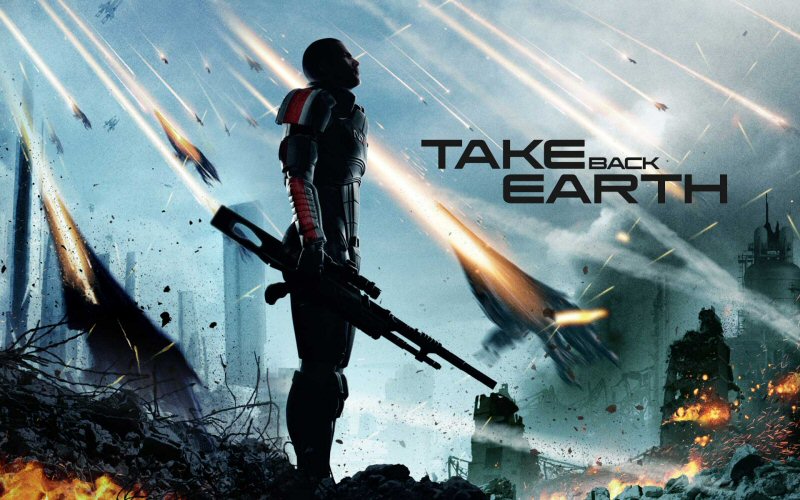
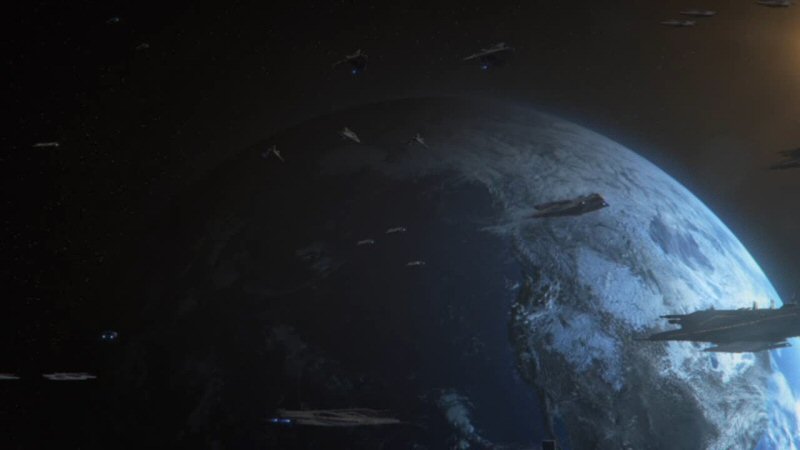

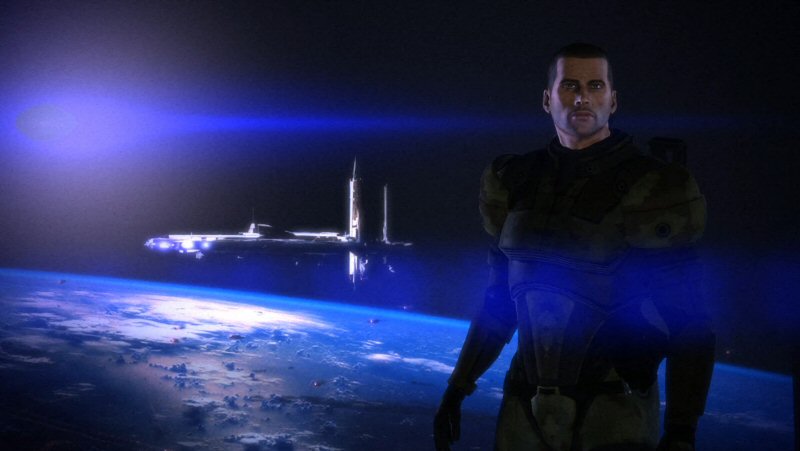
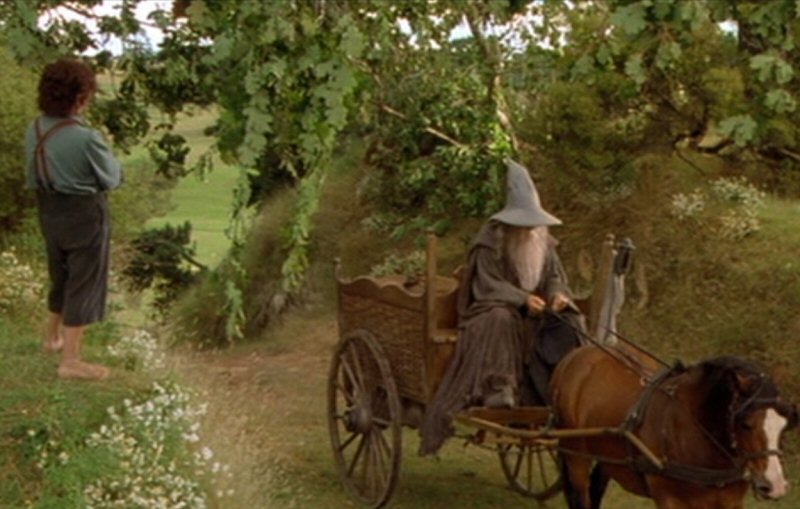



![Have Many Potato [2013] Codex 2013](/forums/smiles/campaign_tags/campaign_potato2013.png)
![The Year of Incline [2014] Codex 2014](/forums/smiles/campaign_tags/campaign_incline2014.png)





